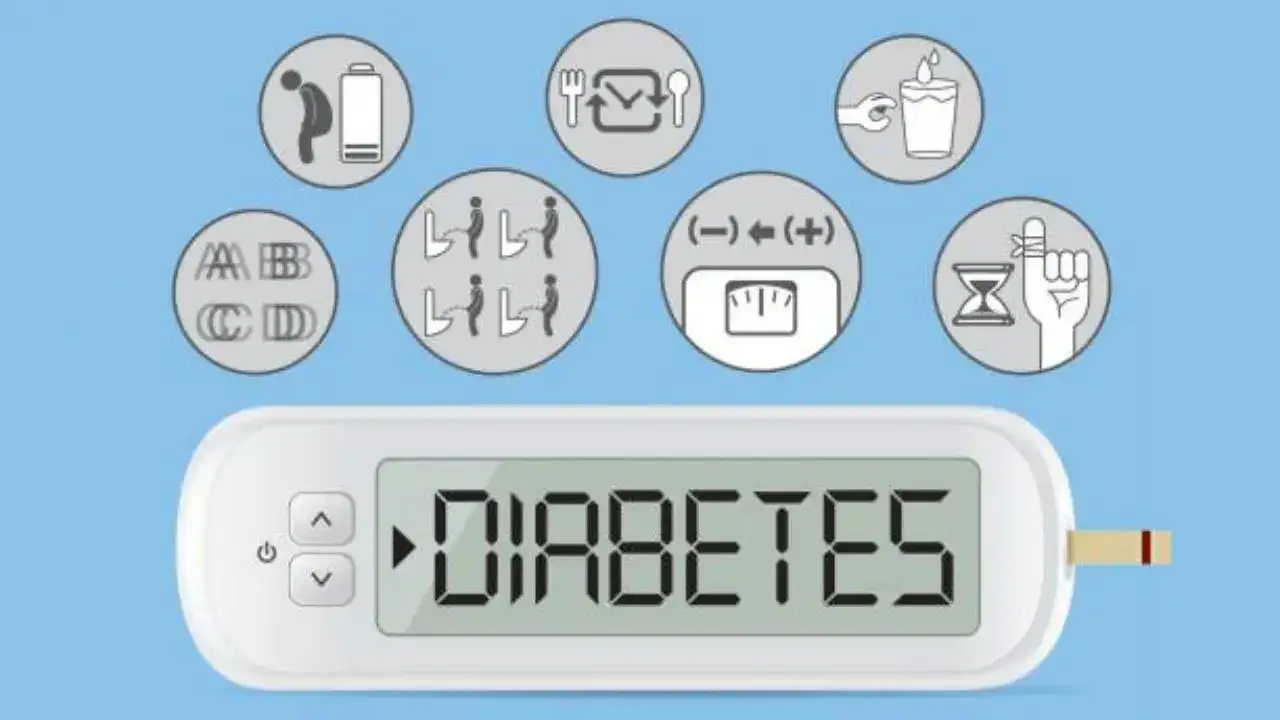
If left untreated, diabetes can cause heart disease, stroke, nerve and kidney damage and vision loss
When glucose builds up in your bloodstream, your blood sugar levels are bound to rise. Experts say most of the food that you eat gets broken down into glucose, which is a kind of carbohydrate. It is also the body's main fuel source and makes your muscles, organs, and brain work properly.
However, it cannot be used as a fuel till it enters your body cells, when insulin stops it, leading to hyperglycemia, which in the long run can damage organs, nerves, and blood vessels. There are a few early signs of high blood pressure that the doctor says can be checked.
If left untreated, diabetes can cause heart disease, stroke, nerve and kidney damage, vision loss, and much more. Even if you have mild blood sugar elevations, it can still damage your organs. A few early signs include:
Frequent urination
If you have been using the bathroom more than normal, especially at night, it can indicate high blood sugar. Diabetes makes your kidneys work harder to remove excess sugar from your blood, and so when they are not able to keep up, the kidneys may spill excess sugar into your urine, causing frequent urination.
Feeling thirsty all the time
Diabetes causes dehydration, making you feel thirsty more often.
Poor vision
High blood sugar damages blood vessels in your eyes, and you may experience blurry vision in either one or both eyes. If left untreated, permanent damage can occur and lead to more serious complications, even blindness.
Slow-healing cuts and wounds
Diabetes can damage nerves and blood vessels, impairing blood circulation. Poor blood circulation restricts the necessary nutrients and oxygen from getting to cuts and wounds for proper healing.
Tingling sensation or numbness
Due to a lack of proper blood circulation and nerve damage, you may feel tingling, numbness, or pain in your hands and feet.
Dark patches on your skin
Diabetes causes dark, velvety patches of skin in the folds of your neck, armpits, or groin due to an excess of insulin in the blood.
Constant hunger
When you eat, your body converts the food into glucose that your cells use for energy. But if you are diabetic, they will not be able to absorb glucose correctly and not get enough energy from the food that you eat. And so, you may feel constantly hungry even if you just ate.
Unexplained weight loss
If your body can’t get enough energy from your food, it will start burning muscle and fat stores instead. So, you may lose weight even if your diet has not changed.
Persistent fatigue
Without enough fuel for energy, you’re left with persistent fatigue and weakness that can interfere with daily activities. Being dehydrated from constant urination can leave you feeling exhausted, as well.
Chronic infections
Doctors say that too much sugar in your body is responsible for the growth of bacteria and yeast, as they thrive in warm and moist areas. Many people, especially women with diabetes, often experience frequent urinary tract or yeast infections.
